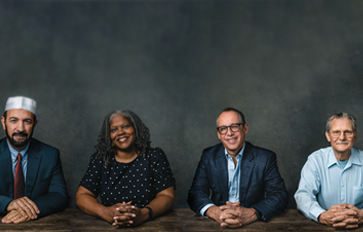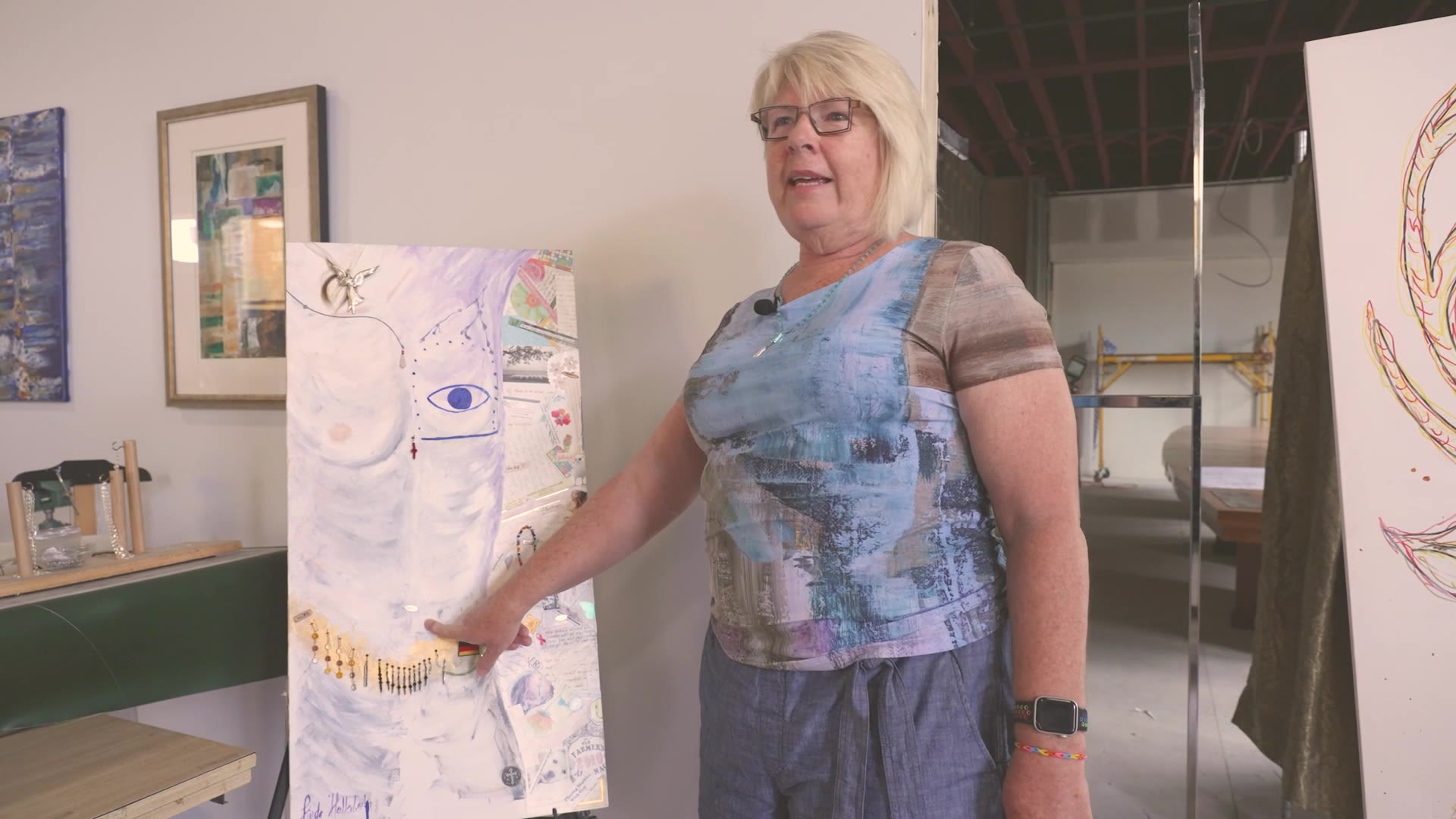Why can’t we accept and love one another? Will we ever create a beloved community? Or will hate win out?
We aren’t naïve enough to think that one interview, video or article can answer these questions, but because we are Growing Bolder, we feel it’s important to ask them. And since most organized religions have their own version of a golden rule, we gathered four different faith leaders as part of an interfaith spiritual roundtable, facilitated by Growing Bolder founder and CEO Marc Middleton.
We began with one simple concept. All religions at their core preach love thy neighbor. Why are we not getting that message? Is it the message, the messengers or the audience?
“Well, let’s start, with the idea that we have corrupted the word religious in our society,” said Rabbi Steven Engel. “We used to think that it was from someone by the way they
behaved, by the way they acted — in a compassionate and just way. But we have now assigned being religious to how often you attend church or synagogue or mosque, how many rituals you perform, and that has completely corrupted the idea of what being a religious person is.”
“I think somewhere along the line we stopped having major conversations, dialogue and everything,” Rev. Katrina Jenkins added. “I think at some point things stopped and it kind of became an ‘us’ versus ‘them’, instead of all of us getting together and learning about each other and really trying to have those deep discussions. We’re not going to sing kumbaya all the time, but we can come to some kind of consensus and appreciation for each other…it just seems like there’s been more of that divide.”
It might be easy to blame that divide on the different interpretations of what is true; yet the religious leaders say the problem actually lies
in our inability to acknowledge and accept that it is all interpretation. The need for resolution versus the acceptance of mystery.
“The problem is when one thinks that they know the exact answer and they have the sense that they’re speaking for God, like ‘I’m saying what God said and now you have to listen to me.’ It’s an act of arrogance,” said Engel.
“We say the multiplicity of interpretations is a blessing,” Imam Muhammad Musri said of the Islamic perspective. “It’s a mercy from God because we are all different. We need to understand and customize our understanding based on our time and place and situation and context.
“What happened in our time is the access to scripture became public. With the internet, everybody can directly read for themselves and interpret, without going to seminary, without studying. They just search for a word, pick a verse and say, that’s what God said. And that’s it.”
For Buddhist teacher Peter Carlson, a major problem of our time is the double edged sword that media wields. “On the one hand we have more opportunities to communicate now than ever before, worldwide. On the other hand, some particular aspects of our culture have usurped that, and made conflict and power to be more important than community,” said Carlson. “We’re all better off than we have been in the past, but this issue of the contentiousness really presents a significant obstacle to us moving forward as a culture.”
In recent years that contentiousness has spread into the arena of politics. As dean of religious and spiritual life at Rollins, Rev. Jenkins is charged with supporting students, faculty, and staff of varied faiths and beliefs. The expanse of this mission was never more apparent than following the 2016 election.
“I had those who were upset about Trump being voted in and those who loved Trump. So, there was that space, there was that space where I had to sit, and I listened to all these sides come in,” Jenkins said.
It’s Jenkins’ goal to foster spiritual awareness as part of Rollins College’s mission of creating global citizens. Among other duties, she oversees the college’s “Table Manners” program: roundtable discussions on religion, politics, and other taboo topics, designed for attendees to better grasp other points of view in a respectful and safe environment.
“I do it one conversation at a time,” she said. “It might sound pollyannish or what have you. If I can change one or two student’s minds, to have them be able to be more open with people, then that’s something that I try to do.
“What I have told people when they come into my office, as long as they don’t disrespect me as a person, African American female, and as long as they’re respectful, I’m willing to listen even though it’s hard for me. I always listen to things that go against my belief system,” said Jenkins.
Statistics indicate that traditional brick and mortar houses of worship are losing numbers and surveys show a growing number of individuals self-identify as “spiritual” instead of “religious.” While that may cause concern for viability of traditional religious communities, the Imam sees it as an evolutionary trend that provides hope for the future.
“I think the current generation and the next, they’re redefining what has been for centuries,” Musri said. “Now there is one global community and it’s growing in number and young people are seeing how similar they are, their needs, their wants. The challenge of climate change is drawing them together to understand that this is going to force them to work together across the globe. And we see that when it comes to their definition of religion and or spirituality, they have also a lot more in common.
“I’m very hopeful that what emerges will be a global culture that respects every human regardless of race, color, religion, and it’s going to translate to a more peaceful world, much more than the 20th century and before.”
Spiritual practices such as prayer and meditation are more common now outside of religious groups and settings, benefiting a wider range of participants, with the potential for positive ripples worldwide, the leaders say. The commitment to listen, to expand our awareness of other faiths and points of view was something that all four agreed is vital for change.
“If there was one thing that I would wish for all the faith traditions of the world, it’s to find a way to emphasize how important it is to train the mind with meditation,” said Carlson. “I meditate twice a day, a couple hours a day, and it’s been very powerful for me. What makes my life hopeful is that potential, that training the mind and the heart to be kinder and more truly adaptive to the changing demands of the way the world is today.”
For real change, we have to dispel the premise that there must be winners and losers in conversations, and that opening up to other points of view means that we have to give up something we believe in. What if there is something to be gained?
“I appreciate going to my Friday Shabbat services. I appreciate going to Jummah prayer. I appreciate meditating,” Jenkins shared. “I do all three, and I’ve gone and sat with students who are pagan. Now, does that push up against what I believe? Yes. But I’m willing to sit in the conversation so that I can learn and be able to do that.”
“My Judaism has been strengthened by getting to know the Imam,” added Engel. “I didn’t have to give up anything. I didn’t have to weaken my position. I strengthened myself.
“And that’s what we have to get to — a point where people understand whether it’s religious differences or gender identity or race or whatever it is, whatever our difference is, that when we engage in conversation it strengthens a person. It doesn’t weaken them because that’s become a myth, that you have to win the argument every time. That’s not what real conversation is about.”
“Each one of us needs to step out of our bubble and make friends with our neighbors and colleagues at work or in school who are different from us, learn a little bit about them, expand our understanding and show some respect,” says Musri. “Not just tolerate them, but respect them.”
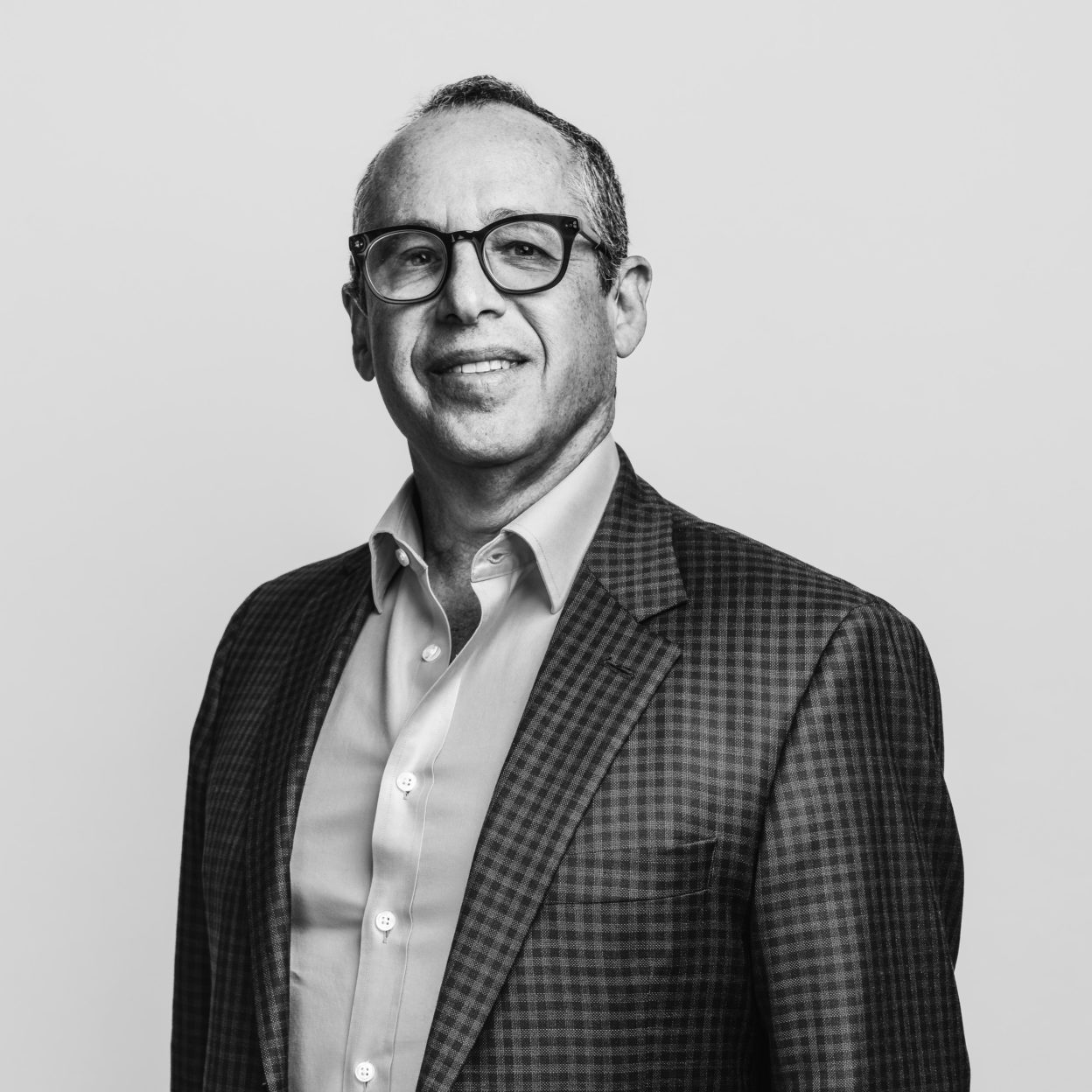
Rabbi Steve Engel | Since 1997, Rabbi Engel has led Central Florida’s largest Reform Jewish congregation. He received Rabbinic Ordination in 1988 and a Doctorate in Divinity in 2013 from the Hebrew Union College-Jewish Institute of Religion in Cincinnati. Rabbi Engel has served as an adjunct professor of religion and a guest lecturer at Rollins College and the University of Central Florida. He is a founding member of The Interfaith Council of Central Florida and has appeared in national media related to his interfaith and social justice work.
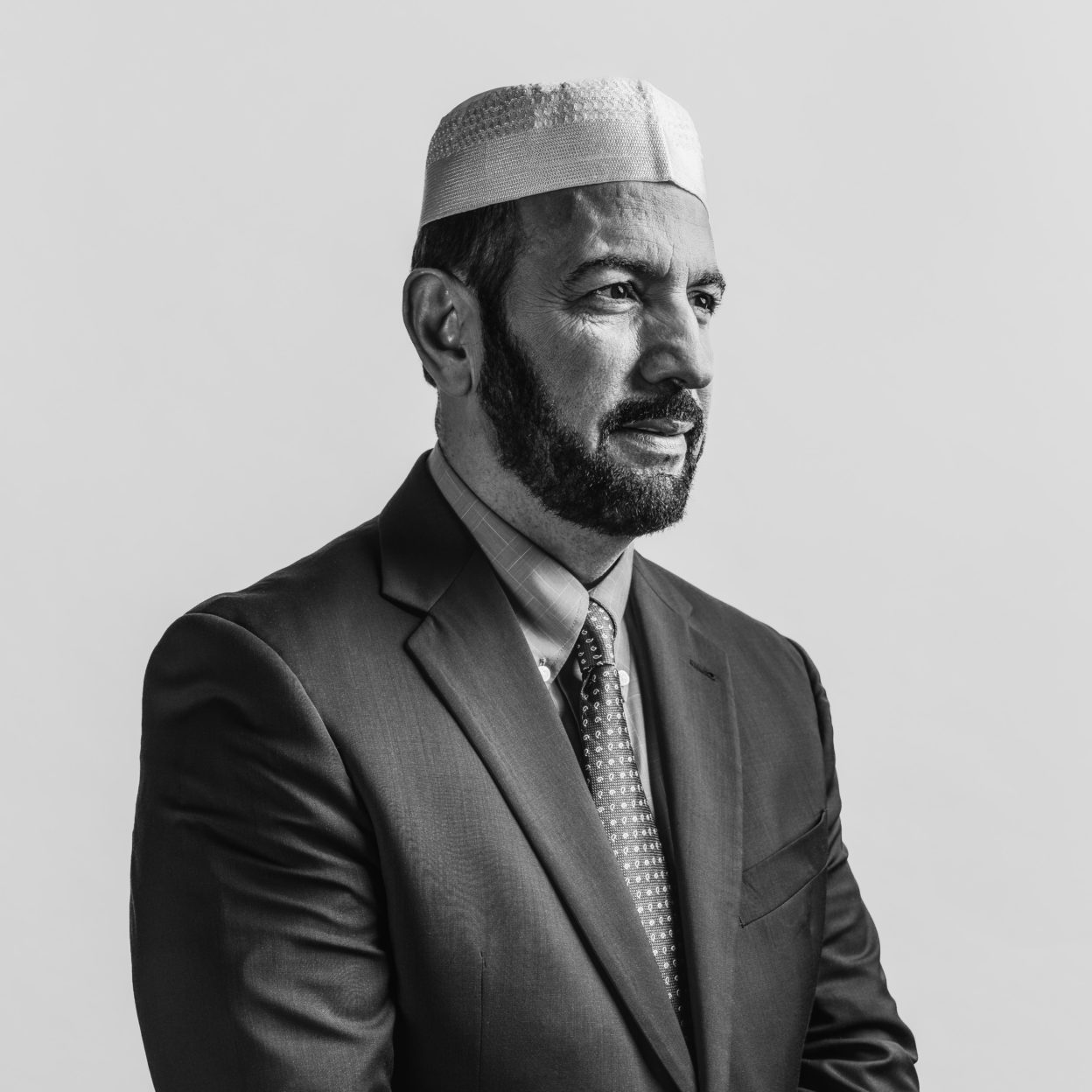
Imam Muhammad Musri | Imam Muhammad Musri serves as the president of the Islamic Society of Central Florida, a position he has held since 1993. He is also president of American Islam, a national organization with the mission of representing and empowering moderate American Muslims. He does this by providing them with religious, educational, social, financial, and advocacy services, and outreaching to the U.S. population, media, and government with the true peaceful message of Islam. Imam Musri earned a doctorate of philosophy in Islamic Studies, and has his MBA from the University of Miami School of Business. Along with Engel, Imam Musri was a part of the Three Wise Guys – “Friends Talking Faith” radio show and podcast.
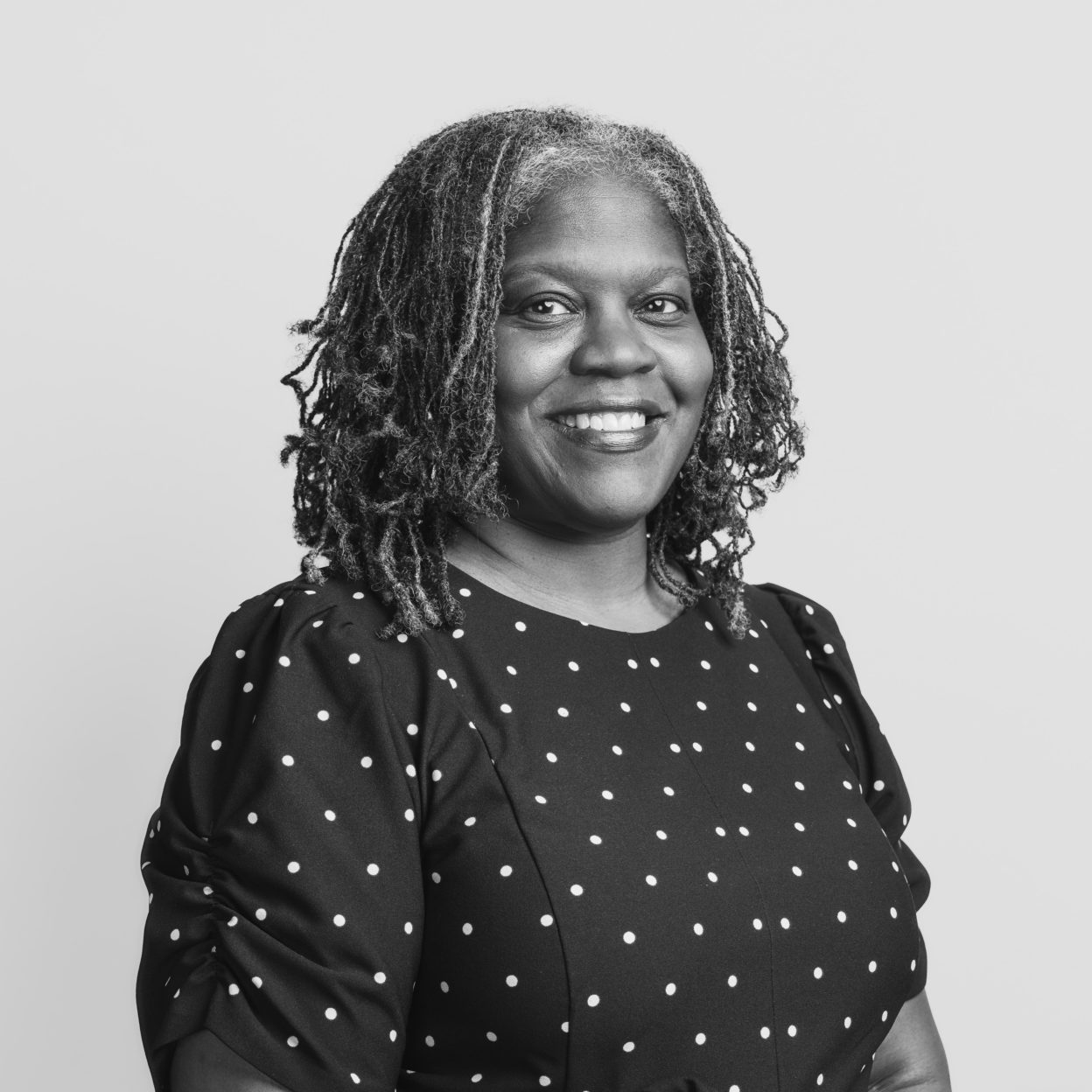
Rev. Katrina Jenkins, M.Div. | In 2016 Reverend Jenkins joined Rollins College as Dean of Religious and Spiritual life, becoming the first female African American person in that role. Known on campus as “The Rev,” Jenkins is an advocate for students, faculty, and staff that choose to have a faithful or spiritual life. She has been a keynote speaker, panelist, and workshop presenter at both domestic and international locales. Reverend Jenkins holds a B.S. degree in Speech Communication from Syracuse University and received her Master of Divinity from Andover Newton Theological School in Massachusetts. She is ordained by The American Baptist Churches, USA, and has over 20 years of chaplaincy within a higher education setting.
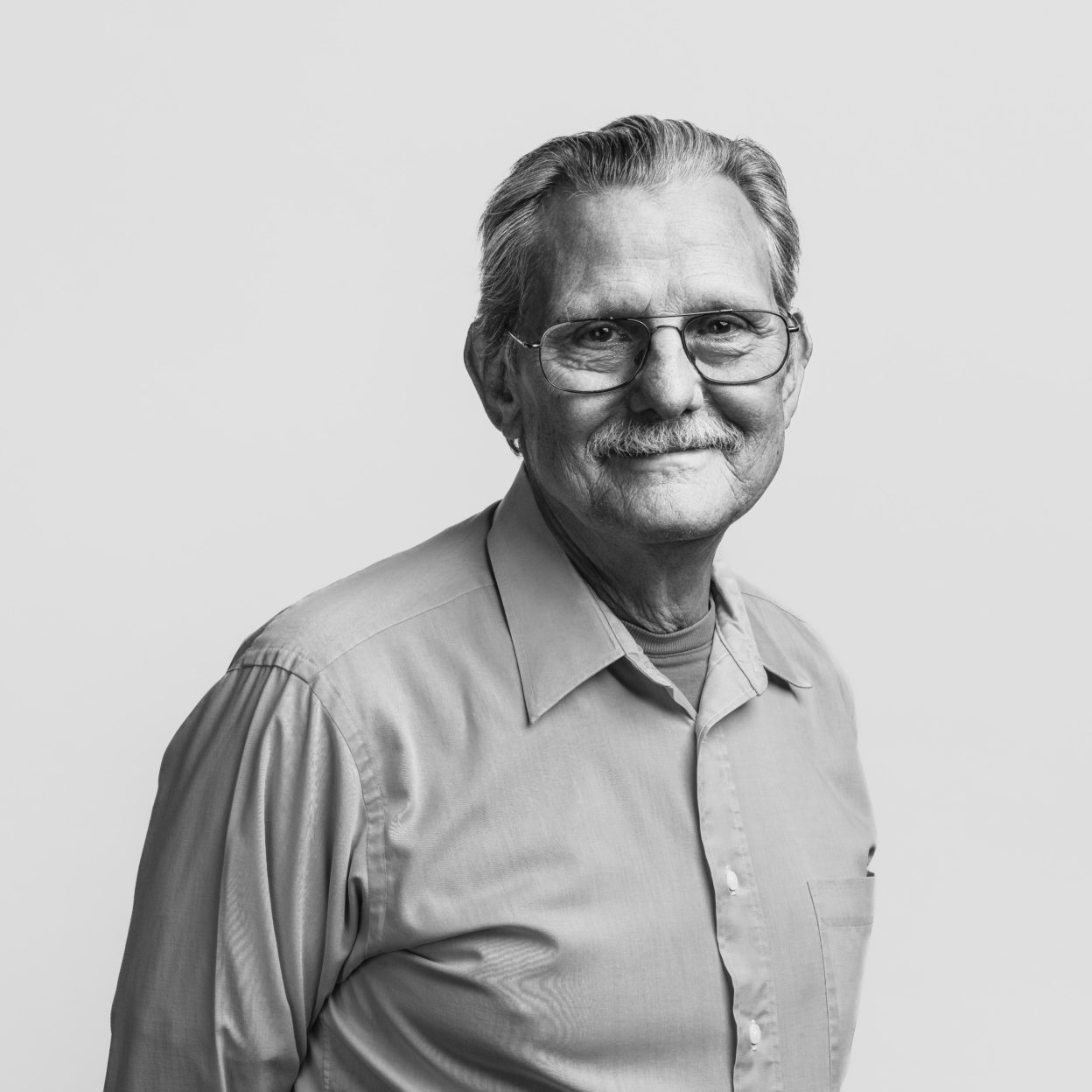
Peter Carlson | Peter Carlson has practiced contemporary mindfulness meditation since his first retreat in 1982. He has sat over 50 retreats since then, lasting from 3 days to 3 months in duration and has attended retreats led by many different teachers. Carlson founded theOrlando Insight Meditation Groupas a nonprofit corporation in 1993 and still serves as president and founding teacher. During the pandemic Carlson retired from a 30-year career practicing psychotherapy, and now teaches courses and leads retreats in Florida and online.
This article is featured in the January 2023 issue of The Growing Bolder Digital Digest.


